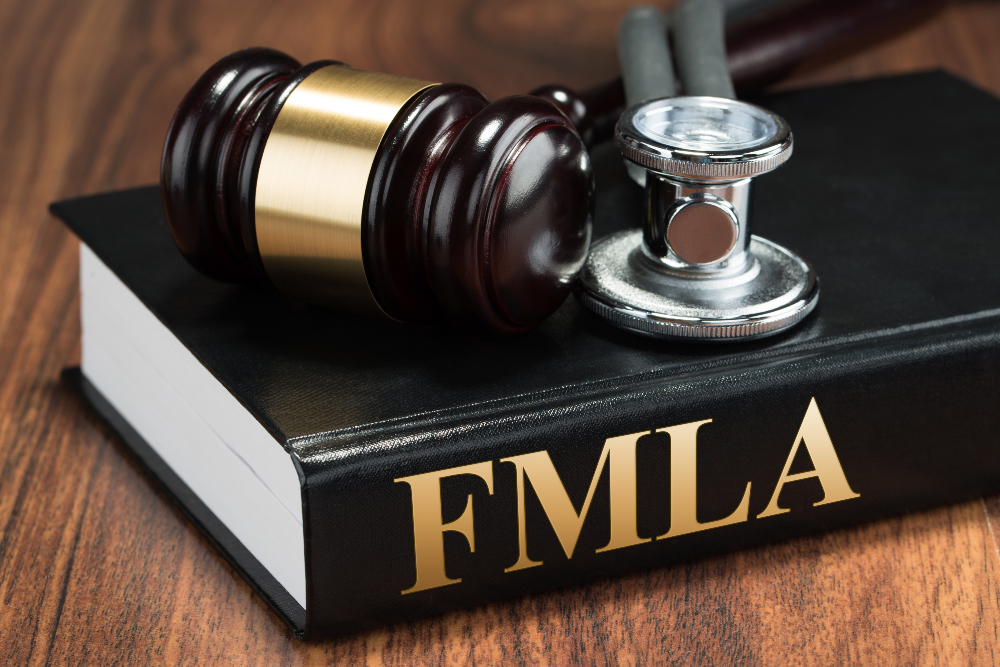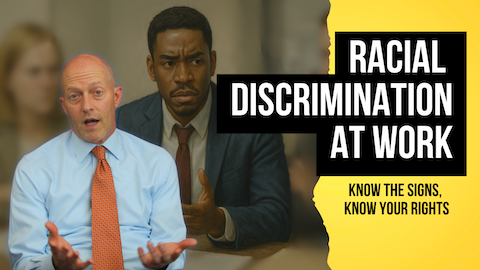Finding a balance between work and personal life can be a formidable challenge. Thankfully, the United States has recognized the importance of supporting individuals who face significant family and medical responsibilities with the Family and Medical Leave Act (FMLA).
A groundbreaking federal labor law enacted in 1993, the FMLA was created to provide vital protection and flexibility to eligible employees–but sometimes employers fail to adhere to its guidelines. If you or someone you know has encountered trouble with an employer regarding an eligible leave of absence, contact The Spiggle Law Firm and our team of employment law attorneys for a complimentary case review today.
What Workers Should Know About the FMLA
Here is what you need to know about the FMLA:
Eligibility
To be eligible for FMLA leave, you must work for a covered employer, which includes private-sector employers with 50 or more employees, public agencies, and public or private elementary or secondary schools. Additionally, you must have worked for your employer for at least 12 months and have accumulated 1,250 hours of service during the previous 12-month period.
Covered Reasons
The FMLA allows eligible employees to take up to 12 weeks of unpaid leave in a 12-month period for the following reasons:
- Birth and care of a newborn child
- Placement of a child through adoption or foster care
- Care for a spouse, child, or parent with a serious health condition
- The employee’s own serious health condition makes them unable to perform their job
- Qualifying demands arising from the foreign deployment of a military member who is the employee’s spouse, child, or parent
- Care for a covered service member with a serious injury or illness, where the employee is the spouse, child, parent, or next of kin
Length of Leave
Eligible employees can take up to 12 work weeks of FMLA leave in a 12-month period. In certain circumstances, such as caring for a covered service member with a serious injury or illness, the leave entitlement may be extended up to 26 work weeks.
Notice and Certification
Employees must provide their employer with notice of their need for FMLA leave. The employer may require medical certification to support the need for leave due to a serious health condition. The certification process ensures that leave is being taken for valid reasons.
Job Protection and Benefits
The FMLA provides job protection, meaning that upon returning from leave, an employee generally has the right to be restored to their original position or an equivalent position with equivalent pay, benefits, and other employment terms. However, certain exceptions exist for highly compensated employees and key employees.
Intermittent and Reduced Schedule Leave
In some cases, employees may take FMLA leave intermittently or on a reduced schedule when medically necessary or for certain qualifying needs. This allows for flexibility in taking leave as needed.
State Laws
Some states have their own family and medical leave laws that may provide additional protections or extend the coverage beyond what the FMLA provides. In such cases, employees are entitled to the more generous provisions of federal or state law.
Enforcement and Remedies
The U.S. Department of Labor’s Wage and Hour Division (WHD) is responsible for administering and enforcing the FMLA. If an employer violates the FMLA provisions, employees may file a complaint with the WHD or file a private lawsuit seeking remedies such as lost wages, benefits, and job reinstatement.
Seek Legal Counsel For FMLA Issues from a Seasoned Employment Law Attorney
When it comes to matters concerning your employment, having a seasoned legal professional by your side can make all the difference. If you are facing FMLA issues, workplace disputes, discrimination, or any other employment-related issue, do not navigate the complexities alone. An experienced FMLA attorney with The Spiggle Law Firm is ready to provide you with the guidance and representation you deserve.
Call (202) 449-8527 or complete our contact form for a free case review.





